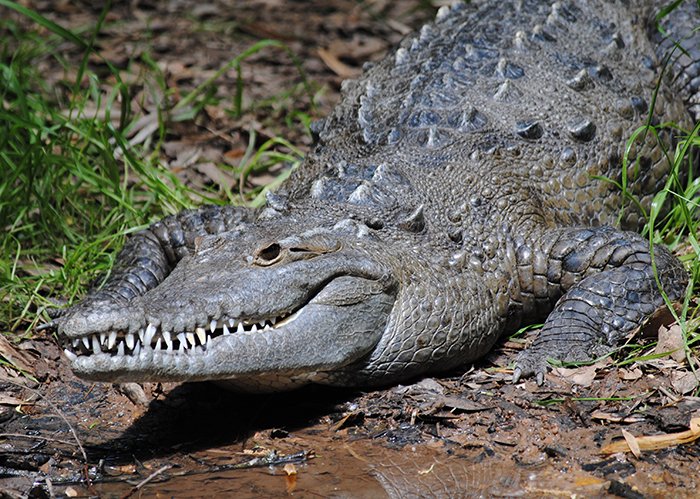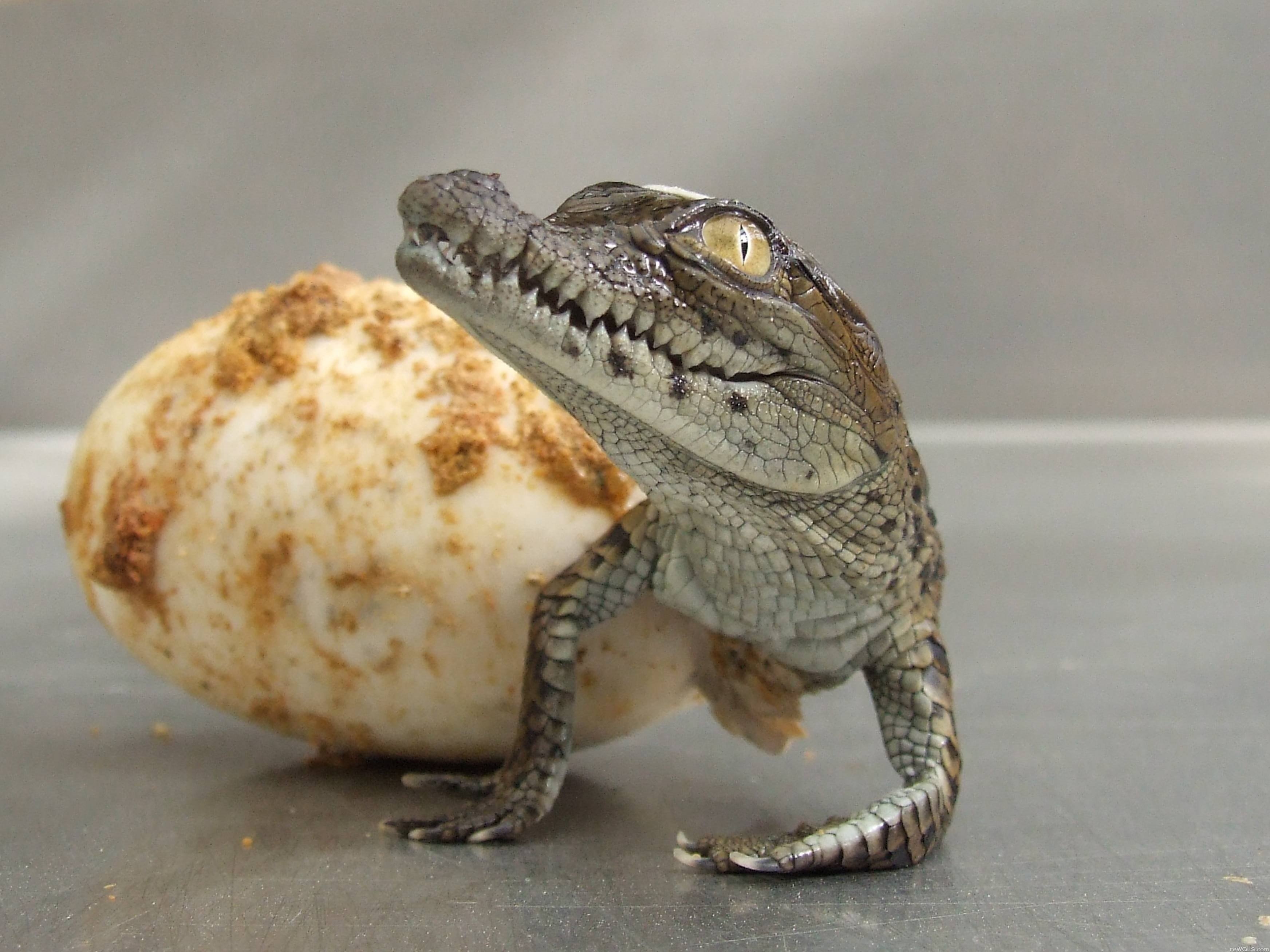Chris Murray is a physiological ecologist who has been studying the American crocodile populations of Costa Rica and their gender ratios. For the past few years, he has been tasked with following up on a recent 2012 study that found an unusual male-to-female ratio among wild populations; it seemed as though something was causing the crocs to change their sex in a dramatic way. After sexing almost 500 wild crocodiles, Murray and his team found that the male/female ratio was indeed unusually unbalanced; in hatchlings and juveniles, males outnumbered females by about four to one.

Having an such an unbalanced population certainly isn't ideal, but it's not necessarily a huge problem by itself. However, this particular shift is especially startling; because of increasing climate temperatures (the mean low temperature in Palo Verde has risen about 2.5°C in less than 20 years [source]), we should be seeing gender ratios moving in the opposite direction. Crocodilians have what is called temperature-dependent sex determination; they lack a sex chromosome and instead their gender is determined by the incubation temperatures of the nest. Murray and his colleagues hid plastic eggs containing temperature recorders in 25 croc nests to determine the general temperature of incubation. Based on their recordings, the team estimated that females should be outnumbering males by at least two to one, however it seemed as though something was overriding the temperature dependent nature of these animals.

Murray discovered that the crocodiles' tissues were tainted with a synthetic steroid, a hormone called 17α-methyltestosterone (or MT for short). MT is generally prescribed for men with testosterone deficiencies or occasionally older women with breast cancer, but is also sometimes abused by bodybuilders to bulk themselves up. So how did the steroid end up in crocodiles living in a rural park? Fish farms, many of which surround the parks where the crocs live, raise tilapia on food that is laced with the hormone; the hormone transforms female fish into males which grow faster and are more profitable. This type of food is deemed safe for humans as the storied doesn't build up in muscle, the part of fish that we eat, however ecologists are worried about MT in the ecosystem as low levels of male hormone can be detrimental to pregnant women. Murray's team is now investigating whether the MT from these farms is what is affecting the crocs sex ratios (though they admit they don't have any direct evidence implicating the farms, and they are investigating other potential sources).

To test the idea that MT was affecting the gender ratio, Murray's team dabbed three different concentrations of the hormone on American alligator (Alligator mississippiensis) eggs (standing in for croc eggs as American crocodiles are listed as vulnerable). The eggs were incubated at a temperature that should have only produced female hatchlings, however in eggs dosed with the two highest concentrations of MT, about 60% of the hatchlings were male. The test confirmed that MT did have a masculinizing effect in crocodilians.
There are still some doubts among scientists that MT is the direct cause of the gender ratio; environmental and endocrine toxicologist Gerald LeBlanc of NC State points out that both males and females contain the same levels of the endocrine disruptor. The team is planning to continue their study in the United States, Indonesia and South Africa to potentially lock in on the exact cause of the change and whether MT truly is at fault. If the farms are responsible, Murray believes the problem is solvable with a few changes to the industry, and predicts that the industry will be willing to take necessary steps to protect the environment.
"This kind of thing gives aquaculture a black eye." - Frank Chapman, an ecologist at UF Source
In addition to the population shift towards males, the team also worries that the crocodiles may be growing more dangerous; Murray and his colleagues are now studying alligators to determine whether early exposure to MT changes the number of androgen receptors in their brains and makes them more aggressive. It is a significant worry that conflicts with humans could increase as a result. But if the MT is truly responsible, it is likely wreaking unseen havoc on the ecosystem, and ecologists are now worrying about native fish, turtles, birds and other species. If something is having such a drastic effect on the crocodiles of Costa Rica, it must be a truly destructive ecological force.

I was fortunate enough to photograph these two American crocodiles in Florida where they are incredibly rare!
Video Link: https://www.youtube.com/
Article Link: http://www.sciencemag.org/


